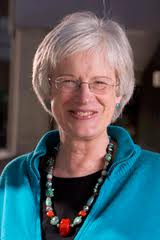Lighting the flame
Many professionals acknowledge that mentoring played a key role in their success. But as Lily Lui said in a Thrive Global interview (https://medium.com/thrive-global/all-great-leaders-have-had-mentors-and-one-woman-is-making-mentorship-easier-27580fddbc47), “Mentorship has remained a relatively elusive process for most—and generally reserved only for those with connections or a willing network. It’s still a hidden playbook.”
Leah Shin, 22, recently asked Diane Gillespie, 72, to mentor her. We didn’t know much about each other; neither of us were “assigned” to the other, as frequently happens. So something happened in our initial meetings that connected us. In being intentional about our mentoring relationship perhaps we can help bring the playbook out of hiding. Here’s the first in a series that describes our relationship.
The Beginning
—Leah’s Story
Winter quarter, I enrolled in a 400-level college course entitled Women, Culture, and Development at the University of Washington Bothell (UWB). The readings, films, and discussions in this class were new to me, eye opening. Frequently, I would hurry home to tell my mom over dinner what we discussed–the gender roles society set for us and how they confine us, especially as women of color.
Diane, an Emerita Professor from UWB, came into this class at the very end, as a guest speaker to discuss the amazing nonprofit Tostan (Tostan.org), which has empowered women and their communities across West Africa. I was immediately drawn to Tostan, her presentation and especially the interactive discussions she facilitated. She asked us questions that led to self reflection; for example, to think about a time when we felt our voices mattered. We then shared some of those times with classmates. This interaction engaged me not only with the reading but also with my classmates’ ideas. Diane’s explanation of empowerment, the interactive teaching style, and remembering when my voice mattered lit the flame inside me–I too can make a positive difference in our world. And then I had a bold thought: “Would Diane consider mentoring me?”
I have had mentors. As a high school student, I had a mentor from the Young Executives of Color UW Foster School mentorship program named Jessica Oscoy who taught me to uplift marginalized groups with the power of business, technology, and design. Then in college, I leaned on my T-Mobile managers who later became my mentors. Della Conley and David Kubiak taught me the concept of selfless leadership in the corporate tech world. Lastly, I relied on my student government Vice President and good friend, Shugla Kakar, who taught me to take risks.
And I took a risk, a leap of faith, when I approached Diane and left her my contact information. After all, she didn’t know much about me–except that I was exuberant after class as I talked with her. This year has been the most challenging for me as I was chosen to work at Microsoft, a company that aligns with my core values of fairness and equality. I am in a two-year full time marketing rotational program. What may have seemed like a relief for many to secure full time employment after graduation is actually more pressure for me as I have a sense of urgency to perform well on many fronts. I need guidance from someone who shares my values.
It worked. Diane emailed. Over coffee, she willingingly told me her life story. As I told her about myself, I thought that she might offer advice. She said that she would help me make decisions as I thought about my future, but more, having shared projects could help her be a better guide. She self-published a book called Stories for Getting Back to Sleep, a fundraiser for Tostan. Would I help her navigate the social media world? She also has an upcoming diversity workshop. Would I could co-lead with her? Our beginning surprised me as I found myself opening to new opportunities that aligned with our shared commitment to women’s empowerment.
—Diane’s Story
It’s true. When Leah came up after class, I saw the light in her eyes and felt her exuberance about how Tostan’s way of working in communities spoke to her. Over coffee, she asked me to tell my life story, which I did. And then she told me about her work as a Microsoft intern and her schooling and majors—Interactive Media Design and Business. She had become a leader in high school and had been thoughtful about her engagement. As we were talking, I realized that I wanted to have a relationship based on more than my stories and any advice that I might have for her. I wanted to be able to engage with her in meaningful endeavors that would allow us to reciprocate and build on each other’s strengths.
Mentoring is a delicate dance. One danger of mentoring is projection—to see in the mentee what the mentor either aspired toward or accomplished and unconsciously impose that on the mentee as an invisible framework. The beauty of mentoring is releasing potential and newly discovered interests on the part of both.
Leah wanted mentoring in writing and leadership. I could work best by engaging in projects with her, including co-authoring this series for Thrive Global. She’s also taking a leadership role in a diversity workshop with me. In turn, it was clear to me that she could mentor me. She is a master of the social media world. She could help me promote my book Stories for Getting Back to Sleep. And she’s already, within a short period of time, designed a plan that I could not have imagined myself.
So we’re off, mentor and mentee and mentee and mentor, sometimes blurring the lines and sometimes drawing them. We’ll be back with more reflections.
Diane Gillespie
Leah Shin

